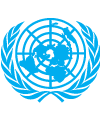NGO Statement: Improving Interactions between Civil Society and the OPCW
Mr. Chairman, Director-General, Distinguished Delegates, Civil Society Colleagues:
Mr. Chairman, Director-General, Distinguished Delegates, Civil Society Colleagues:

Over the past decade, Russia has stepped up its disinformation campaigns to erode trust in arms control across the nuclear, chemical, and biological domains. The new era of rapidly disseminated disinformation poses significant challenges to U.S. national security and, more specifically, to arms control verification and compliance. In this polluted information environment, offense is king.
On November 27, 2023, the Twenty-Eighth Session of the Conference of the States Parties to the Chemical Weapons Convention (CSP-28) opened in The Hague, Netherlands. This five-day meeting discusses various aspects associated with implementing the Chemical Weapons Convention (CWC), which has been in effect since April 29 1997. Organisation for the Prohibition of Chemical Weapons (OPCW) is responsible for fulfilling the Convention’s mandate.
Bakhmut, an eastern Ukrainian city, has been enduring the consequences of Russia's aggression since the outset of the Ukraine conflict in February 2022. Once known as Artemivsk, it retained this name until 2016, encompassing both the Soviet and post-Soviet periods. During the 2014 Russian invasion of Ukraine, the Russian occupiers laid claim to Bakhmut as part of their territorial ambitions. However, the Ukrainian government managed to retake the city in mid-2014. Russia's interest in Bakhmut stems from its strategic geography, which enables them to disrupt Ukraine's supply lines.

Syria’s Chemical Weapons Declaration Cannot Be Considered Accurate, Complete, Disarmament Affairs Chief Tells Security Council
Alexei Navalny, the Russian pro-democratic opposition figure and anti-corruption activist, wrote in an August 2021 article that “[I] did not die from poisoning by a chemical weapon, and it would seem that corruption played no small part in my survival.” Fortunately, he lives to tell this ordeal. Navalny was recollecting the assassination attempt on his life exactly a year back, with a suspected nerve agent. On August 20, 2020, Navalny was grievously ill onboard a flight from Tomsk (Siberia) to Moscow.
Presentation to the 23rd CWC Conference of States Parties (CSP) Organization for the Prohibition of Chemical Weapons, The Hague, The Netherlands, November 23, 2018
Mr Chairman, Director-General, Distinguished Delegates, Ladies and Gentlemen, It’s an honour to be present at the 23rd Conference of States Parties (CSP-23) and the 4th Review Conference of the Chemical Weapons Convention.
The incident of poisoning of Sergei Skripal, a former Russian military intelligence official, and his daughter on March 4, 2018, in Salisbury, (United Kingdom) allegedly by the Russians have caught the attention of the world. Two months after the notorious incident, on May 18 Russian President Vladimir Putin said that ‘Sergei Skripal would be dead if military grade toxin was used’. With this remark, Putin pushed the investigations of the alleged use of nerve agent ‘Novichoks’ against Sergei Viktorovich Skripal and his daughter Yulia Skripal into complete disarray.
The Hague Code of Conduct against Ballistic Missile Proliferation (HCoC) has completed ten years of its existence. This code was formally brought into effect on November 25, 2002, at a conference hosted by the Netherlands at The Hague. This was also known as the International Code of Conduct (ICOC). This code is voluntary and not-binding in nature and mainly expects the subscribing states to furnish annual declarations on missile policy and the pre-launch notifications (PLNs) of missile test launches.
On Aug 30, 2012 the Lower House (Lok Sabha) of Indian Parliament passed a bill to amend the Chemical Weapons Convention (CWC) Act (2002). The Chemical Weapons Convention (Amendment), 2012 Bill “prohibits transfer of specified toxic chemicals from and to a country which is not party to the Chemical Weapons Convention (CWC)”. Passing of this Bill was part of India's international obligation towards CWC.
Paxton ported to drupal by DropThemes.in